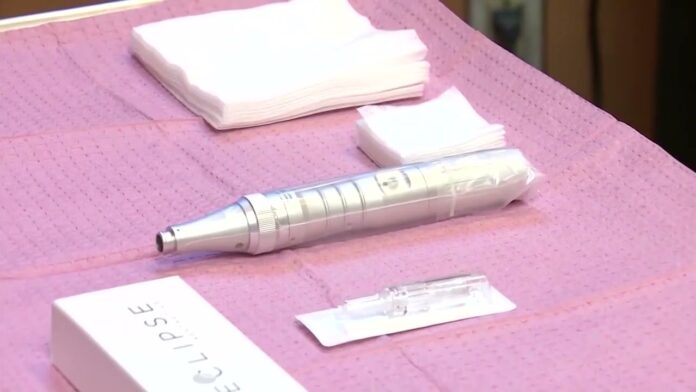A recent CDC investigation reveals the first known cases of HIV transmission through cosmetic procedures at an unlicensed New Mexico spa
Three women have contracted HIV after undergoing “vampire facials” at an unlicensed spa in New Mexico, marking a significant health concern linked to this popular cosmetic procedure. The Centers for Disease Control and Prevention (CDC) has confirmed these cases as the first known instances of HIV transmission through non-sterile cosmetic injections.
A “vampire facial,” technically known as platelet-rich plasma (PRP) therapy, involves extracting a person’s blood, processing it to enhance the platelets, and re-injecting it into the face using microneedles. Advocates of the procedure claim it helps rejuvenate the skin by reducing pore size and fine lines. However, the CDC’s findings highlight the critical importance of adhering to stringent sanitary practices during such procedures.
The affected women, none of whom had prior risk factors for HIV, likely received the virus through treatments at the now-defunct facility. Investigations began after one of the women tested positive for HIV while traveling abroad in 2018. Subsequent tests revealed more cases, including one woman who discovered her HIV status during routine testing for life insurance and another diagnosed when hospitalized for an AIDS-related illness.
State health officials initially became suspicious of the spa after discovering multiple safety violations, including unlabeled blood tubes and injectables improperly stored alongside food in a kitchen refrigerator. These conditions prompted the 2018 closure of the VIP Spa in Albuquerque by the New Mexico Department of Health. Maria Ramos de Ruiz, the former owner of the spa, was later convicted of practicing medicine without a license and sentenced to three-and-a-half years in prison.
This alarming incident serves as a stark reminder of the dangers posed by unlicensed medical and cosmetic facilities. The CDC advises anyone considering medical or cosmetic injections to verify the licensure and training credentials of the provider and to ensure that all products used are FDA-approved and sourced reliably.
In light of these events, the CDC is also examining similar health risks in non-healthcare settings across 11 states linked to counterfeit Botox treatments, emphasizing the broader implications of such practices on public health
